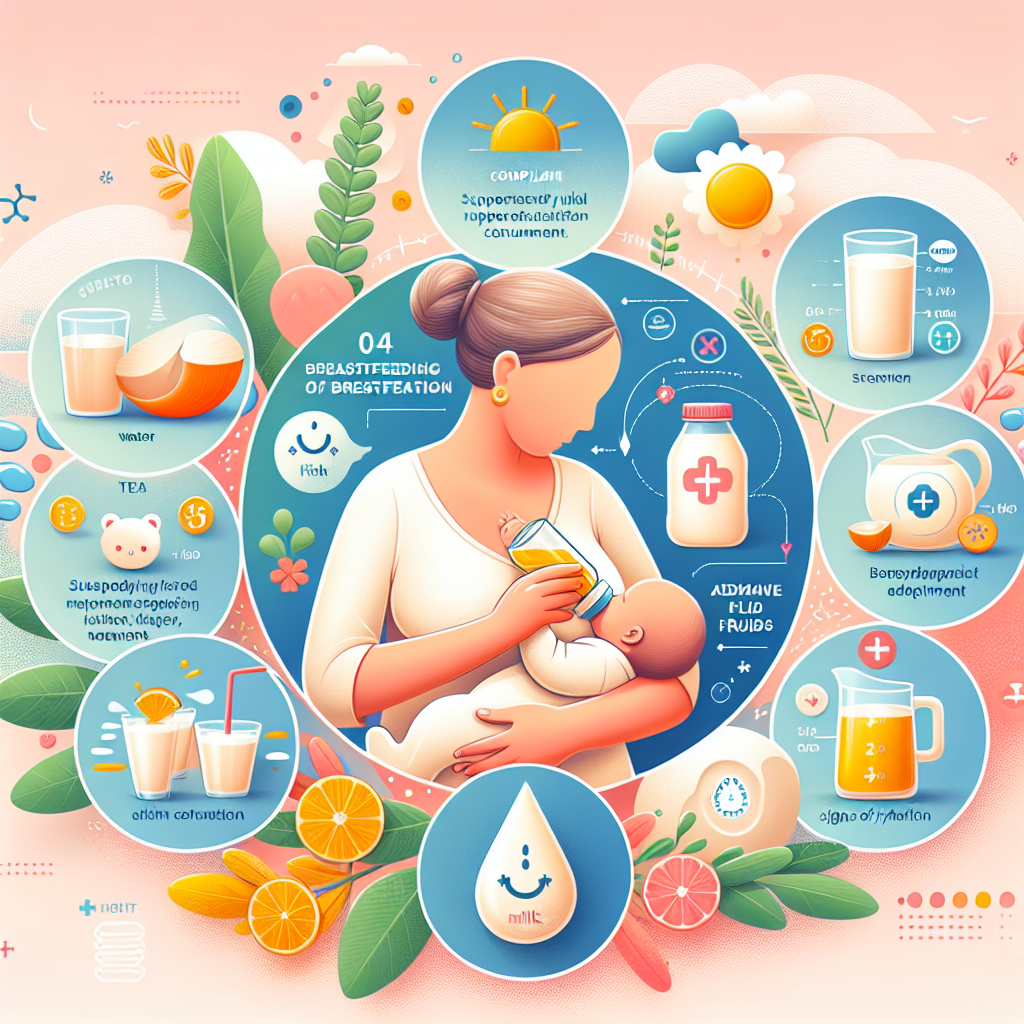Optimal Fluid Consumption During Breastfeeding: The Complete Guide
Breastfeeding is an extremely important time for both newborns and mothers. It is a natural process by which mothers feed their babies, but which also requires careful attention to one's own lifestyle and nutrition. One of the essential aspects that any nursing mother must be aware of is optimal fluid intake. We'll detail everything you need to know about proper hydration while breastfeeding in the following sections.
The Importance of Hydration for the Nursing Mother
As you know, the human body is mostly composed of water, and proper hydration is essential for various body functions. During breastfeeding, the mother's fluid needs increase considerably. Breast milk production involves additional water consumption, therefore it is imperative that the mother adjust her fluid intake to support the lactation process.
How Much Should You Drink?
It is difficult to establish an exact amount of fluids that should be consumed daily because each body is different and has individual needs. General recommendations suggest that a breastfeeding mother should consume about 3 liters of fluids per day. However, the most important thing is to listen to our body's signals and drink fluids whenever we feel thirsty.
What Kinds of Liquids Are Recommended?
Of course, not every type of liquid is beneficial during breastfeeding. Water should be the main fluid consumed. In addition to water, other beverages can be consumed that contribute to the general well-being of mother and child, such as natural juices, milk, unsweetened herbal teas and, in moderate amounts, coffee.
The Role of Fluids in Milk Production
Hydration is directly related to the body's ability to produce breast milk. Insufficient fluid intake can lead to dehydration, which will result in a decrease in the amount of milk produced. In addition to quantity, it is important to note that the quality of breast milk can also be affected by inadequate fluid intake.
Myths about Fluid Consumption and Breastfeeding
There are many myths surrounding breastfeeding and fluid intake, such as the idea that you need to drink milk to produce milk, or that cold drinks can give babies a cold. These are just myths and have no scientific basis. It is important to maintain a balanced fluid intake and choose healthy options.
Signs of Dehydration in Nursing Mothers
Symptoms of dehydration can be easily overlooked, so it's important to look out for signs such as excessive thirst, dark urine, fatigue, dizziness and dry mouth. If you notice these symptoms, it is essential to increase your fluid intake.
The Impact of Hydration on Well-Being
Adequate hydration not only influences the quantity and quality of breast milk, but also the mother's general well-being. A well-hydrated body recovers more easily after childbirth, has more energy and is less susceptible to certain conditions, such as urinary infections or constipation.
Effective Hydration Habits
To ensure that you maintain an optimal level of hydration, it is recommended to adopt certain habits, such as always having a bottle of water close at hand, drinking a glass of water before each feeding and establishing a schedule of consumption of liquids throughout the day.
Conclusion
Hydration is key to breastfeeding success and the health of both mother and baby. It is important to be aware of the quantity and quality of liquids we consume during this period. By taking into account the tips presented, you will help ensure effective breastfeeding and support the harmonious development of your child. Every mouthful of water counts, so don't forget to pay attention to your hydration! If you feel the need for more information or want to make sure you are adopting the best practices for you and your baby, do not hesitate to visit our section specifically dedicated to natural feeding or subscribe to our newsletter.














































































































































